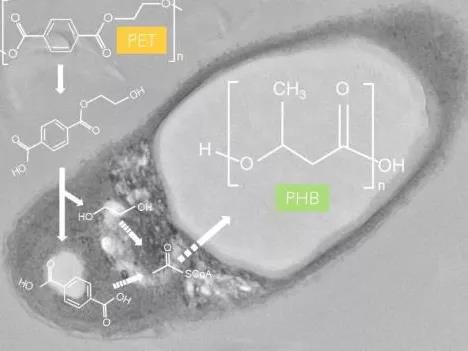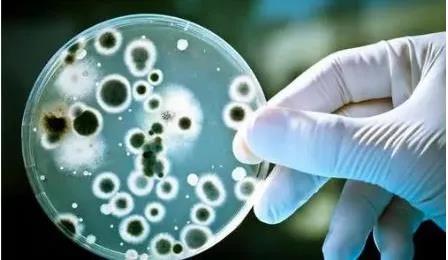Plastic pollution is one of the most pressing environmental issues of our time. The accumulation of petroleum-based plastics is having a devastating impact on our environment, wildlife and human health. In a recent study published in Scientific Reports, researchers at the Nara Institute of Science and Technology revealed a bacterium that not only degrades petroleum-based plastics that are difficult to recycle, but can also sustainably produce more environmentally friendly biodegradable plastics.

Petroleum-based plastics, including polyethylene terephthalate (PET), are widely used in everyday products such as single-use plastic bottles, textiles and food wrappers. Although such products are disposed of quickly after use, they persist in the environment for hundreds of years. The plastic pollution caused by our disposable culture is now beyond manageable levels and overwhelming the planet's ability to deal with it. The environmental impact is becoming increasingly apparent, with wildlife and human health under increasing threat.
While reducing the production of unnecessary single-use plastics and improving waste management systems will help alleviate the pollution crisis, our reliance on the convenience of plastic products is unlikely to diminish anytime soon. As a result, researchers are looking for alternative ways to "clean up" the more persistent plastics in our environment, and it appears that microbes may offer some promising solutions.
Certain bacteria contain the necessary enzymes to degrade PET, the most environmentally problematic plastic, explained senior author Shosuke Yoshida, adding that our research shows that Ideonella sakaiensis bacteria convert PET to poly(3-hydroxybutyrate) (PHB), a biodegradable poly(hydroxyalkanoate) (PHA) plastic. He continued.

This discovery is particularly promising because it addresses two current issues in plastic sustainability: degrading the most durable petroleum-based plastics while sustainably producing biodegradable plastics.
We believe this finding could have important implications for addressing plastic pollution, Yoshida said, because we show that the PET degradation and PHB synthesis pathways are functionally linked in I. sakaiensis. This may provide a new pathway in which individual bacterial species break down hard-to-recycle PET plastics and use these products to make biodegradable PHA plastics. Given the enormous challenge of dealing with global plastic pollution, this novel bacterial approach may be an important part of the solution.

